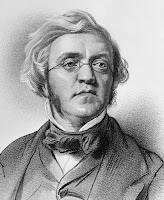I confess, I rarely read poetry. However, I have always been intrigued by poets, songwriters, and others who can creatively conjure up amazing imagery, and invoke our emotions, in spite of the enforced constraints and frugal use of words demanded by their craft.
Until recently, if I were to try and think of a poem or song that had some relevance to writing back in the day when pen and ink were actually used, the best I’d be able to come up with would be – The Ink is Black, The Page is White, and other than the title I’d have to hum the rest. Three Dog Night brought the song to the top of the charts in 1972 but it was originally written in 1954 in celebration of the US Supreme Court’s decision outlawing racial segregation of public schools. So, it turns out it wasn’t really about writing at all…
Then, a few months ago, while sleuthing about, searching for possible additions to my collections, I came across this very clever “conversation” between a 3 year old pen and a diary, written in the middle of the 19th century by William Makepeace Thackeray (1811-1863).
As a collector, I’ve often wondered about the life led by each item in my collection – who owned it and once held it in their hand?; where had it travelled?; what interesting history had it recorded during its time?; and so on. Here, finally, was an actual pen from the Victorian era (named “Mordan” no less!) that was willing to share all of that and more …
|
The Pen and the Album
‘I am Miss Catherine’s book,’ the album speaks; ‘I’ve lain among your tomes these many weeks; I’m tired of their old coats and yellow cheeks. ‘Quick, Pen! and write a line with a good grace: PEN. ‘I am my master’s faithful old Gold Pen; ‘O Album! could I tell you all his ways ALBUM. ‘His ways? his thoughts? Just whisper me a few; PEN. ‘Since he my faithful service did engage ‘Caricatures I scribbled have, and rhymes, ‘I’ve writ the foolish fancy of his brain; . . . . . . ‘I’ve help’d him to pen many a line for bread; ‘I’ve spoke with men of all degree and sort— ‘Feasts that were ate a thousand days ago, ’Summons to bridal, banquet, burial, ball, ‘Poor Diddler’s tenth petition for a half– ‘Condole, congratulate, invite, praise, scoff. ’Day after day the labor’s to be done, . . . . . ‘Go back, my pretty little gilded tome, ‘Dear, friendly eyes, with constant kindness lit, ’Kind lady! till my last of lines is penn’d, ‘Not all are so that were so in past years; ’So be it:—joys will end and tears will dry— ‘And thus with thankful heart he closes you; ’Nor pass the words as idle phrases by; |
|
|
